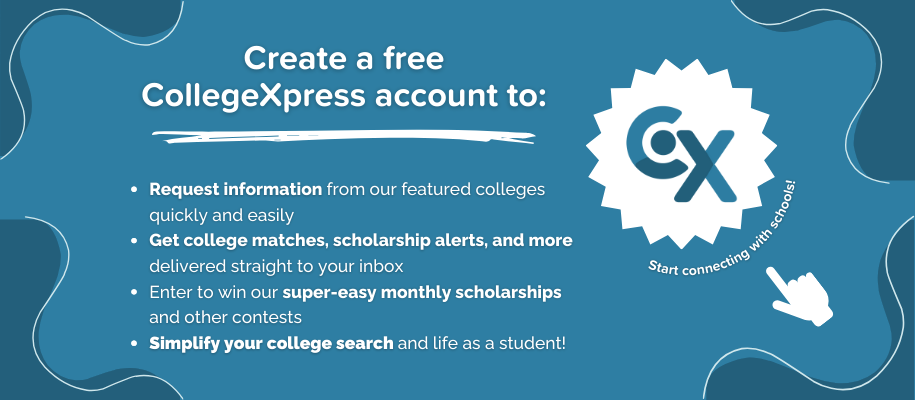Are you selling yourself short when it comes to college? There’s a disheartening reality far too many high school students face in their college search and application journey: undermatching. This is a phenomenon in which academically qualified students (often high-achieving students from low-income and/or minority families) fail to apply to and/or choose to attend selective colleges or universities, despite having the credentials to succeed there.
Undermatching is like the flu: Once you catch it, it permeates every aspect of your college experience. For example, if you undermatch, you might also convince yourself you aren’t good enough for college in the first place, that you won’t fit in, and so many other maladaptive thoughts that are neither true nor helpful. So how can you avoid catching this insidious flu? How can you avoid undermatching?
Why do students undermatch?
Students undermatch for many different reasons, including a lack of financial stability at home or aid to fund the college experience, a general unease about being able to handle collegiate academics, and more. (Compounding this misfortune is the fact that many—if not most—of the elite schools these students could be attending generally provide the most financial aid, making students’ fears of affordability unfounded. More details below.)
Many of these students are also the first in their families to attend college, which only adds to the stress of succeeding not only as individuals but on behalf of their families as well. To alleviate this intersectional pressure, many students end up attending less selective schools, with many choosing not to apply to their reach colleges in the first place. In doing so, they lose out on the opportunity to fulfill their dreams and potential.
Related: Find out how to make your dream school a financial reality
The problem with college undermatching
Undermatching is a serious problem. Not only does it predicate economic inequality and social immobility, but it also continues a destructive cycle of insecurity in the student. This results in a systematic decline in the self-actualization of low-income and/or minority students. It’s fundamentally stunting, as students will never know the opportunity and fulfillment they would have attending the school of their dreams.
All the while, undermatching disadvantages the universities and colleges themselves because they miss out on those diverse voices, perspectives, and—most importantly—the students themselves. According to Slate, only 8% of students in the lowest income bracket apply to selective schools, and “many of these smart, poor kids apply only to a single unselective school.” This is not to say that undermatching students necessarily have a “bad” experience at the institutions they choose; it might be the perfect college for them. And you certainly don’t need to attend an elite institution to be successful in life. But if you feel as though you might undermatch yourself when it comes to choosing a college or university, try to keep the following points in mind.
You can afford college
A major factor in why students decide to undermatch is the (perceived) financial burden. Sometimes, the school at the top of your list might also topple your college budget as well. Although deciding which college is affordable is a highly personal decision you make with your family, it’s important to remember that there are ways to pay that gargantuan sticker price—even though it may seem a bit out of reach when you first see the financial package the school offers.
First, keep in mind that many of the most selective schools also offer the most generous financial aid packages, with many meeting 100% of your demonstrated need. It may seem inconceivable, but if you're accepted into a school like Harvard, Vanderbilt, Yale, or Duke, you can almost certainly afford to go! Granted, in some cases, even meeting 100% of a student’s stated financial need still isn’t quite enough. (Pro tip: These colleges don’t include loans for low-income students in their financial aid packages.) But there are solutions to these issues as well, starting with talking to the college’s financial aid office to explain your situation and perhaps even appeal your financial aid package.
Applying for scholarships and loans
Next, applying for a litany of scholarships through local organizations (where the competition isn’t usually as steep) and online increases your odds of alleviating the financial burden of college. Moreover, deciding to commute to a college if it is close enough rather than becoming a residential student helps cut major corners when it comes to cost. Taking up a summer job and/or part-time work during the semester could also help lower your college costs.
Then there are those widely feared facets of the financial package: student loans. But don’t be disillusioned by the negative rap loans get! They can be critical assets in attending the school of your dreams—if used correctly. For example, choosing a federal subsidized loan (one that does not accrue interest while you are in school) helps build credit and also gives you leniency to begin paying the debt after the six-month post-graduation grace period. Although taking out a loan is another serious financial decision you should make with your family, it's an option that can help you overcome undermatching due to finances.
Related: Let's debunk the worst myth: "College Is for Rich Kids"
You are not alone
The college experience is a lot to take in. Not only do you have to restart your life in a new place, but this new place might be far from home, or it might be the kind of community you aren’t accustomed to. These daunting factors may also lead a student to attend an undermatching college—as they choose a “safer” school that’s closer to home, where all their friends are going, etc. Although the more comfortable college choice may seem quite tempting, clinging to the familiar is not a good reason to let go of your dream school. The entirety of college will be an unfamiliar experience—and this is the beauty of the next four years. You'll encounter people from a wide array of backgrounds, perspectives, and beliefs who are all facing the same fears.
Having the courage to step out of your comfort zone and field this unmarked territory only builds character. Markers of familiarity such as cultural groups, first-generation student programs, and friends from similar socioeconomic backgrounds can also make the college transition a bit more manageable. It's better to welcome this change rather than undermatching to shy away from it.
You are enough
I saved the best and most important advice for last. You might undermatch yourself to a college that wasn’t at the top of your list because of an overwhelming fear of not doing well once enrolled. You might psych yourself out, convincing yourself that you would be/are the “admission fluke,” an imposter who somehow got accepted yet doesn’t belong. Imposter syndrome can be a huge hurdle between getting accepted to your top college and actually attending it. The key thing to remember is that once you receive that acceptance letter, your dream college is no longer a dream; you have been accepted and declared a necessary part of the incoming class.
Admission officers pore over student applications with meticulous care and sincerity to determine which students are, in fact, a good fit for the institution—and vice versa. Therefore, if you were admitted, you have already shown that you are good enough for the school and its academics, community, etc. Choosing to undermatch out of fear that this isn’t true undermines all the hard work you’ve done to get to this point. You’ve been accepted to your dream school—now make this dream a reality!
Related: Learn more about college accessibility, plus resources for underserved students
Whether you’re on the fence about applying to a reach school or questioning whether you should attend the dream school that accepted you, don’t let undermatching hold you back. Try. Just try. You have nothing to lose—and everything to gain.
Are you still looking for colleges and universities that fit you? Find great schools using our College Search tool! You can also start connecting with colleges and request more information from our featured schools by creating a free CollegeXpress account. Check out all the perks of joining the CX community:






